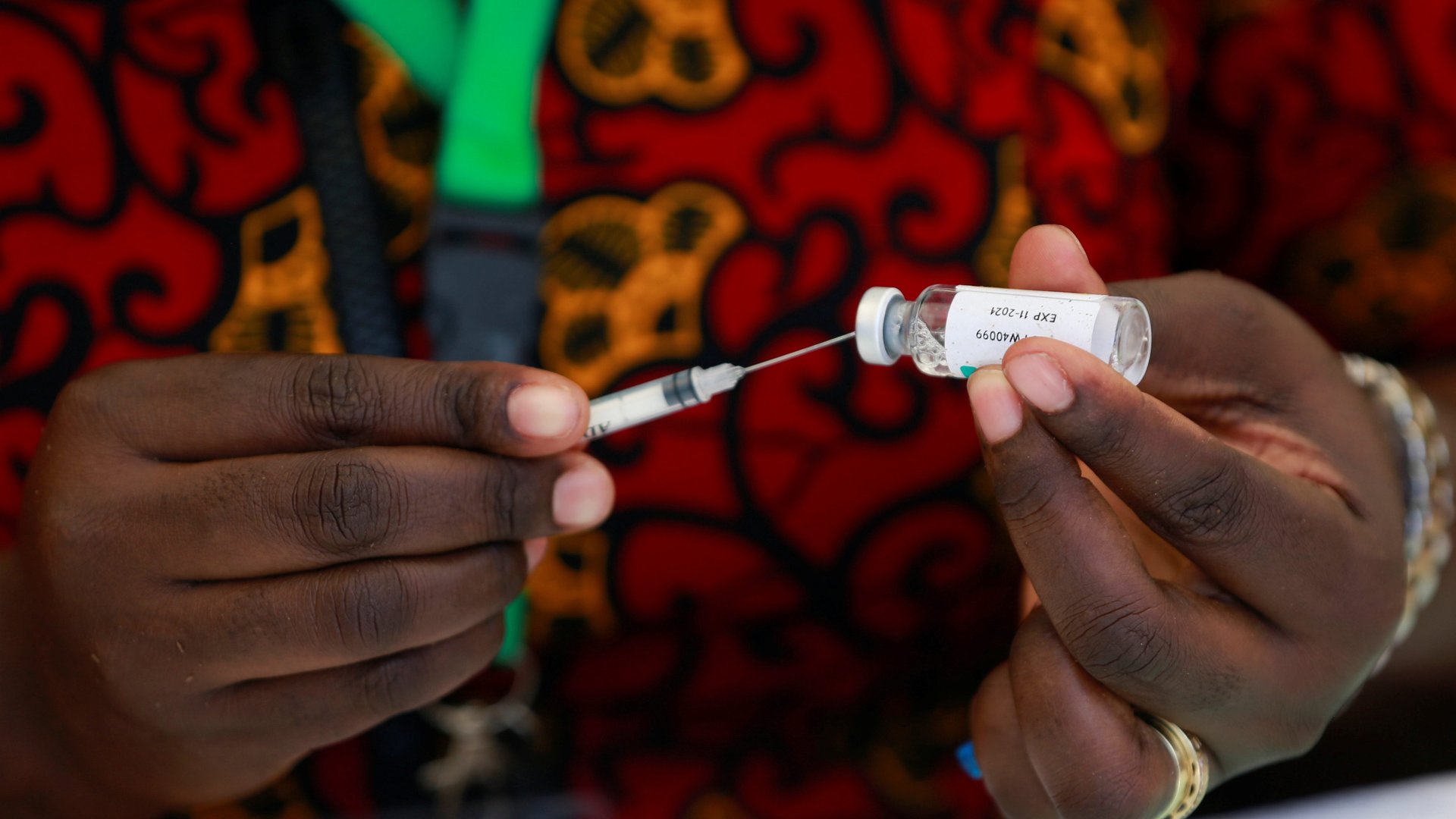Europe sent Nigeria up to 1 million near-expired doses of covid-19 vaccine
As many as 1 million doses of AstraZeneca’s covid-19 vaccine reportedly expired before they could be used in Nigeria, a country of more than 200 million where less than 2% of the population is fully vaccinated.


As many as 1 million doses of AstraZeneca’s covid-19 vaccine reportedly expired before they could be used in Nigeria, a country of more than 200 million where less than 2% of the population is fully vaccinated.
According to Reuters, the doses were sent from Europe through Covax, a program to distribute covid-19 vaccines donated by rich countries to poor ones. But Nigeria didn’t have enough time to distribute the supply before much of it expired—in some cases, within four to six weeks, versus the AstraZeneca vaccine’s typical shelf life of six months—and much of the donation went to waste.
Vaccine waste routinely occurs in large immunization campaigns, and rich countries such as the US, UK, and Canada have been especially cavalier in letting millions of doses expire and destroying them, even as the rest of the world was short on supplies. But what happened in Nigeria is a different issue: Not only is the number of wasted doses very large, but they arrived relatively close to their expiration date, in a county not yet equipped to ensure rapid distribution, offering yet another indicator of the severity and complexity of vaccine inequality.
Vaccine waste is on Europe, not Nigeria
The blunder in Nigeria isn’t the first. In November, despite needing vaccine doses, Namibia warned it would be forced to destroy doses because their remaining shelf life wasn’t long enough to allow for distribution. South Sudan, the Democratic Republic of the Congo, and Malawi similarly had to destroy or return doses of vaccines donated by wealthy countries because they didn’t receive them in time to distribute them before expiration.
In November, Nigeria was able to distribute 800,000 doses that were close to their expiration date, thanks to a plan that has ramped up vaccine facilities, according to the World Health Organization (WHO).
One year after the global vaccination campaign started, rich countries continue to hoard vaccines, pretty much limiting their global redistribution efforts to leftover doses arriving too late for their usefulness to be fully maximized.
Former UK prime minister Gordon Brown warned in late September that 100 million surplus doses of covid-19 vaccines would go to waste in rich countries by December and urged those nations to donate them instead. Even a timely response back then would have likely left receiving countries with only a few weeks to administer the doses.
Ad-hoc vaccine donation is ineffective
In a statement from the Global Alliance for Vaccines and Immunization (GAVI), on behalf of Covax, which it leads with the WHO, the organization nonetheless praised Nigeria’s success in delivering large numbers of doses in a short period of time, pointing at an important issue that limits the ability of poor nations to deliver what they receive: the lack of a vaccine supply stream that is predictable and reliable.
Although more doses of vaccines have been sent to poor countries (chiefly African) in recent weeks, the donations continue to be piecemeal and ad-hoc, with doses often received close to expiration dates, according to GAVI.
The lack of a steady stream of supply is one more challenge in countries already grappling with a lack of refrigerators or reliable electricity to store the vaccine in remote locations, a lack of health workers to administer the shots, a shortage of syringes needed to deliver the life-saving medicine into arms, and the need to conduct other large immunization campaigns alongside the one for covid-19.
So alongside other measures (such as sharing patents), wealthy countries need to get more consistent with how much they’re sending and how often, and making sure their donations have enough shelf life left to get distributed.
Responsibility is on vaccine manufacturers, too. “We’ve seen manufacturers [that] delayed their shipments to Covax while we know that they’re supplying other buyers, countries,” WHO chief scientist Soumya Swaminathan said at a recent press conference.
As the emergence of omicron has shown, until better immunity is reached globally, the whole world continues to be under threat from new variants. We need wealthy countries and drugmakers to stop treating poor countries as repositories for soon-to-expire leftovers, so that we have a chance to have some actual control over the pandemic.
Sign up to the Quartz Africa Weekly Brief here for news and analysis on African business, tech and innovation in your inbox.